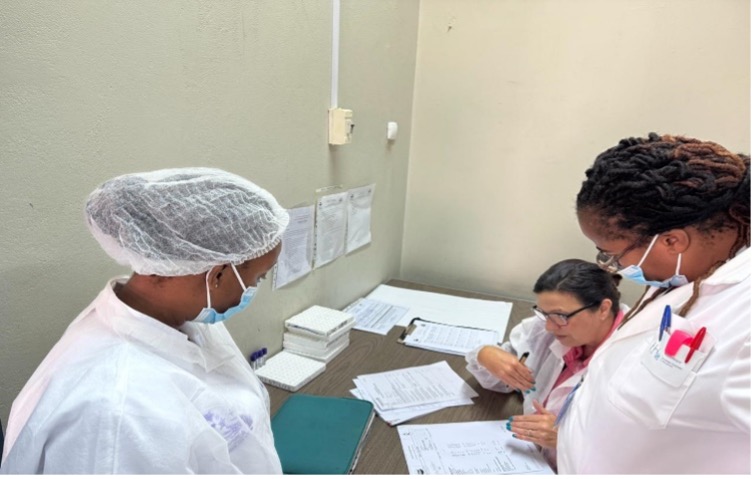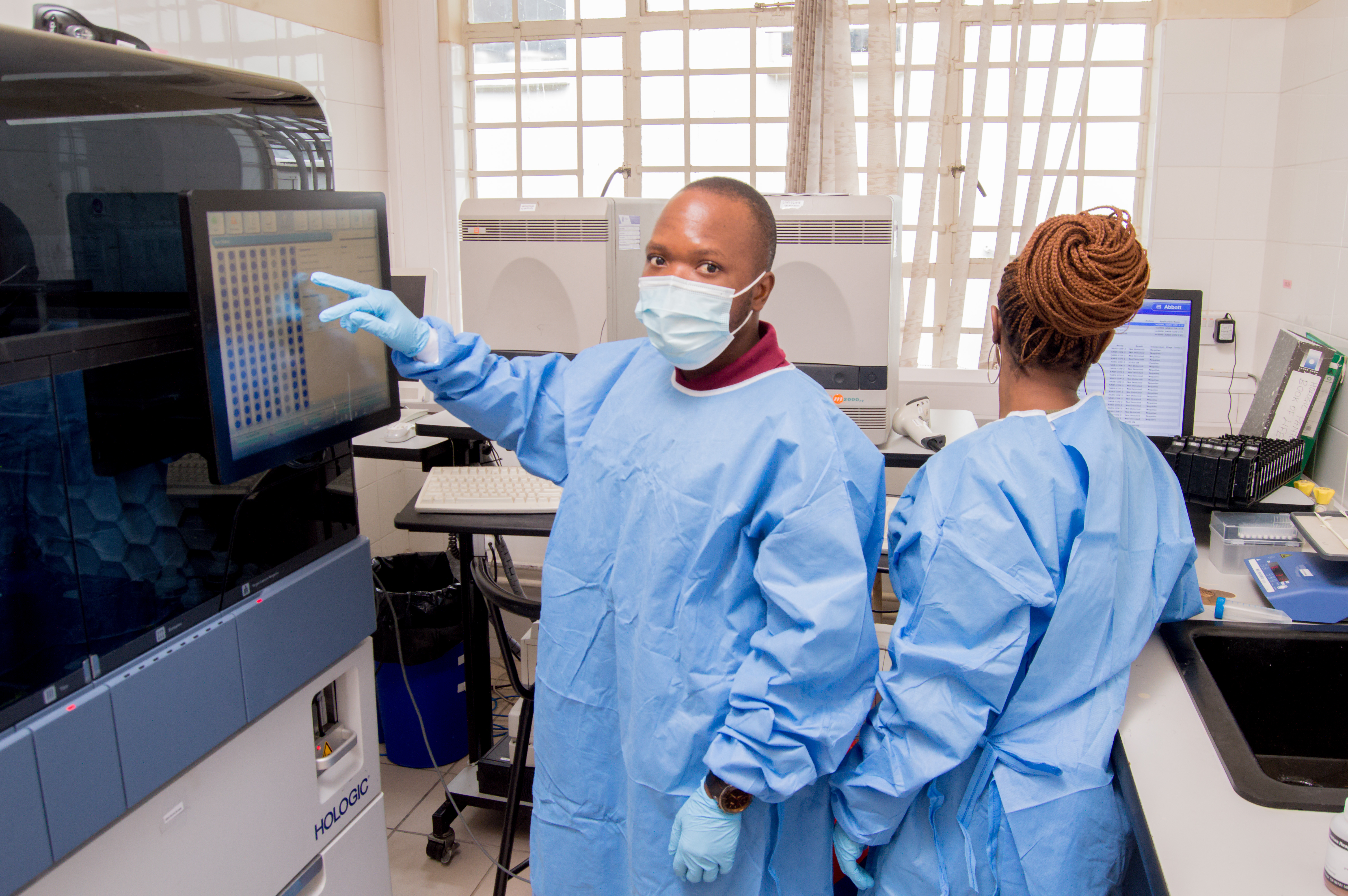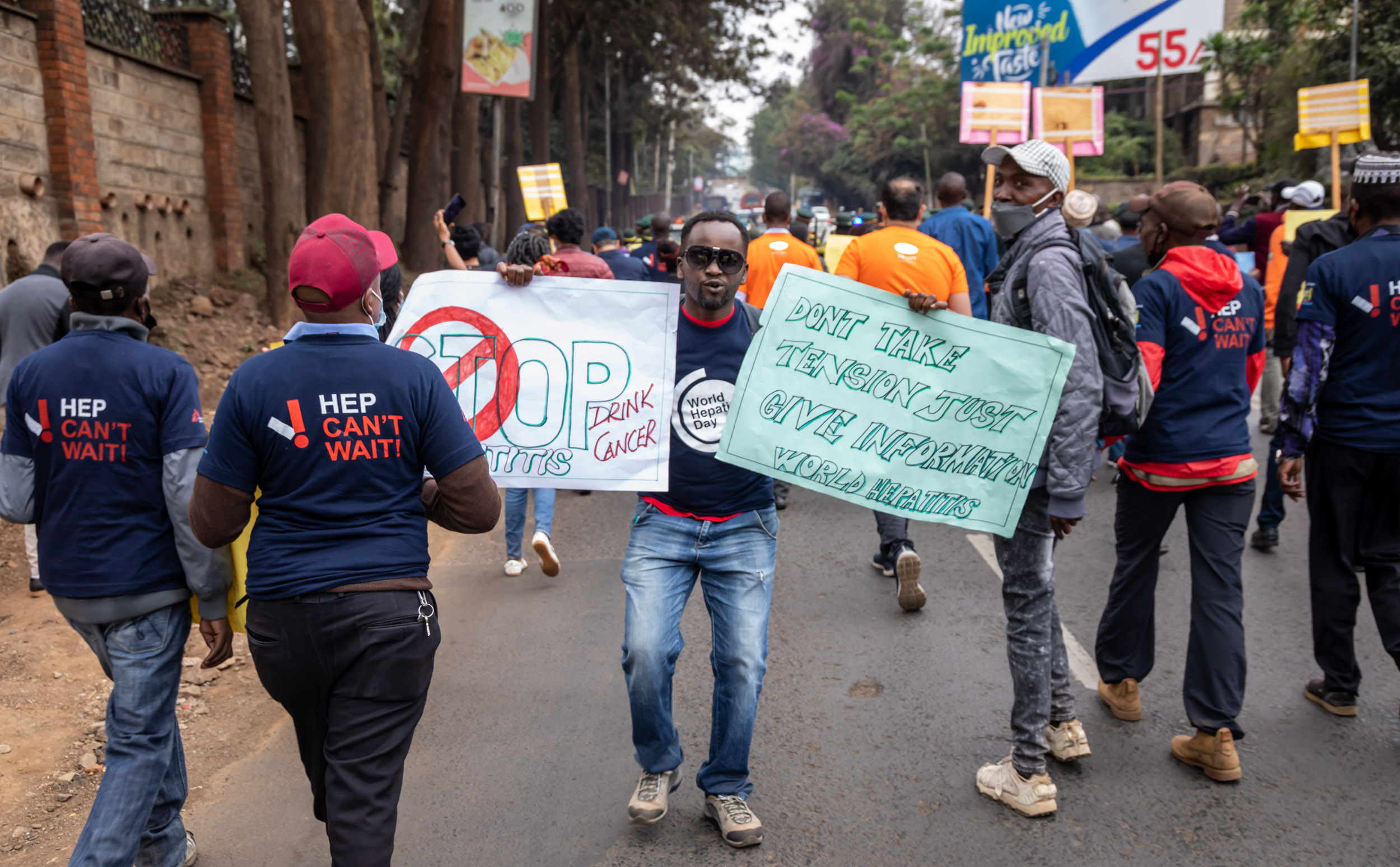April 12, 2024 | Jennifer Gonzales jennifer.gonzales@ihv.umaryland.edu

In March 2024, five Mozambican laboratories were recommended for international accreditation, marking a notable benchmark in the country's healthcare capabilities. Collaborative efforts led by the University of Maryland, Baltimore (UMB), alongside the Mozambique Instituto Nacional de Saúde (INS) and Ministry of Health (MOH), have positioned these laboratories for acceptance by the Southern African Development Community Accreditation Service (SADCAS). The achievement directly improves patient care and public health outcomes throughout Mozambique by guaranteeing the quality, dependability, and international recognition of laboratory testing services.
As part of this comprehensive effort, UMB, in partnership with INS and MOH, has provided extensive training and financial support during implementation. This support extends to training two INS and two MOH mentors and providing resources for laboratory enhancement. Trained quality assurance officers are strategically placed across Mozambique, with three in Maputo, one in Nampula, and one in Tete Provinces. These officers, along with technical staff in the five laboratories, play a crucial role in ensuring that laboratories adhere to guidelines and standard operating procedures for clinical lab accreditation.
In the tedious process of accreditation assessment, identifying non-conformities (not meeting specified requirements in process or product), emerges as a critical step. These non-conformities, categorized based on their severity, necessitate corrective action to ensure compliance with international standards. Through assessments conducted by SADCAS, zero to six non-conformities were identified across the five laboratories.
Achieving international laboratory accreditation provides several benefits, such as enabling laboratories to identify and monitor diseases and tackle drug resistance issues effectively. Accredited laboratories aid the facilitation of accurate and rapid diagnostics, enhance treatment efficiency, and reduce errors in laboratory processes. It is essential to recognize that accreditation signifies adherence to standardized procedures to improve quality and patient safety to continually improve quality and patient safety.
Once closure on nonconformities is satisfied, these will be the first laboratories in Mozambique to receive full accreditation from SADCAS, marking a significant stride toward enhancing healthcare standards and outcomes in the country.
Contact
Jennifer Gonzales
Communications and Public Relations Manager
jennifer.gonzales@ihv.umaryland.edu
Related stories

Friday, July 14, 2023
Addressing Unprocessed HIV Viral Load Samples Backlog in Malawi
The health sector in Malawi was faced with a pressing backlog issue of unprocessed HIV viral load samples. These had accumulated due to reagent stockouts and persistent power outages in the country.

Monday, August 29, 2022
Kenya Celebrates World Hepatitis Day
Hepatitis A, B, and C are the most common of the viral hepatitis in Africa, with the African region accounting for 26% of the global burden for hepatitis B and Cin 2020.

